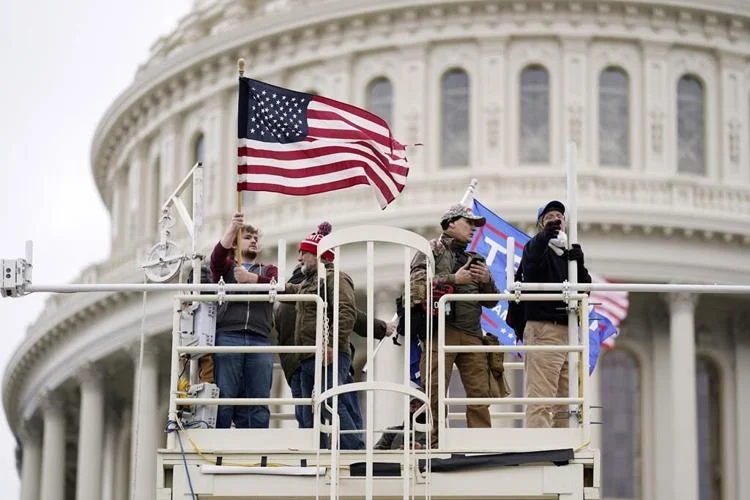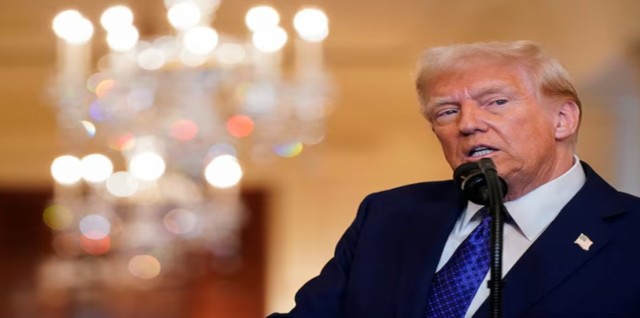
AP photo/Julio Cortez,file
Former President Donald Trump has reframed the Jan. 6, 2021 Capitol attack as a central theme in his bid for the White House, leveraging it to rally his base of supporters. During a recent rally in Ohio, Trump expressed admiration for individuals imprisoned for their involvement in the assault, describing them as patriotic. Trump, who previously pledged to pardon those involved, reiterated his commitment to assisting them once back in office.
The revisionist narrative surrounding the events of Jan. 6, which Trump has actively promoted since the early stages of his presidential campaign, has now become a focal point as he seeks to appeal to a broader audience in anticipation of a general election. By exalting the rioters and deflecting culpability for his own role in the incident, Trump is asking voters to absolve both himself and the perpetrators of the deadly attack on the Capitol.
Furthermore, Trump's allies are cementing the falsehoods that fueled the violence by appointing individuals who deny the outcome of the 2020 election to key positions within the Republican National Committee. This institutionalization of baseless claims raises concerns about the future integrity of election certification processes, particularly as Congress faces renewed scrutiny over its handling of the Jan. 6 attack.
Amid these developments, Republicans in Congress are launching a fresh investigation into the events of Jan. 6, with a focus on downplaying Trump's involvement and promoting alternative theories regarding the motivations of the rioters. This revisionist approach, however, ignores the gravity of the situation, as five individuals lost their lives during the assault on the Capitol.
Experts caution that Trump's actions and the broader GOP response represent a concerning trend toward authoritarianism, characterized by the consolidation of power around a single individual. By disregarding democratic norms and perpetuating false narratives, Trump and his allies undermine the rule of law and the foundations of American democracy.
Trump himself faces legal challenges stemming from his alleged role in fomenting the Jan. 6 attack, including charges of fraud and obstruction of Congress. Despite these legal hurdles, Trump's rhetoric and actions suggest a continued commitment to his revisionist narrative, with the aim of securing a return to the White House.
While some Republicans express reservations about Trump's approach, many remain silent or actively endorse his efforts to rewrite the events of Jan. 6. This complicity underscores the challenges facing the Republican Party as it grapples with its identity and future direction in the aftermath of Trump's presidency.
In the face of mounting criticism, Trump remains defiant, targeting individuals such as former congresswoman Liz Cheney, who have sought to challenge his version of events. Despite opposition from within his own party, Trump's influence and appeal among Republican voters remain significant, posing a dilemma for GOP leaders seeking to distance themselves from his divisive rhetoric.
As the nation grapples with the aftermath of Jan. 6 and its implications for democracy, the actions of Trump and his supporters continue to shape the political landscape, raising fundamental questions about accountability, truth, and the future of American governance.















